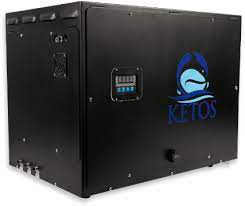Remotely Measure Levels of LSI in Water
Monitoring Water for Langelier Saturation Index With KETOS SHIELD
Accurately Measure Levels of LSI in Water
Download our KETOS SHIELD overview to reveal how we can:
- Deliver lab-precision accuracy across an extensive operating range
- Easily install, integrate, and operate KETOS within any organization's existing infrastructure
- Help companies move away from manual testing and high third-party lab costs while keeping all testing on-site and completely automated
- Provide your water operators insights to help them with real-time decision-making (to protect equipment and prevent downtime)
Learn To Automate Langelier Saturation Index Testing In Water With Lab-Accurate Results in Real-Time
"*" indicates required fields
Testing for Langelier Saturation Index in Water
 Find out how KETOS SHIELD solves for the monitoring of 30+ water testing parameters (including the Langelier Saturation Index) in real-time – while saving your organization costs with our $0-CAPEX subscription model.
Find out how KETOS SHIELD solves for the monitoring of 30+ water testing parameters (including the Langelier Saturation Index) in real-time – while saving your organization costs with our $0-CAPEX subscription model.
Our award-winning intelligent water management solution, KETOS SHIELD, provides organizations worldwide with a real-time monitoring solution that can measure the Langelier Saturation Index (and 30+ other parameters). Monitor water testing parameters via an interoperable, modular system that seamlessly automates sampling and reporting.
Why Monitor Water for the Langelier Saturation Index (Calculated) with KETOS
The Langelier Saturation Index (LSI) is an approximate indicator of the degree of calcium carbonate saturation in water. LSI is calculated using other variables, including alkalinity, calcium concentration, pH, total dissolved solids, and water temperature. If the Index is positive, it indicates the water is over-saturated with calcium carbonate and can begin to form scales. If it is negative, the water is undersaturated and can become corrosive. If, on the other hand, it is near zero, it will neither form scales nor enable corrosion.
Since having too high of a concentration can lead to scale buildup, and too low a concentration creates the potential for corrosion, it’s essential for water operators to balance their LSI carefully. By carefully monitoring for spikes of positive or negative LSI levels, water operators can quickly begin to rebalance their water, thereby helping to reduce the need for equipment downtime or unnecessary damage to existing water infrastructure.
What are the Issues with Langelier Saturation in Water?
Langelier Saturation Index (LSI) serves as a critical parameter in water chemistry, assessing the tendency of water to dissolve or precipitate calcium carbonate minerals. While LSI provides valuable insights into water stability and corrosion potential, deviations from the optimal range can lead to several challenges. Here are key concerns associated with Langelier Saturation in water:
- Corrosion or Scaling: LSI values outside the recommended range can indicate water’s propensity to either corrode metal surfaces or deposit scale. Negative LSI values suggest corrosive conditions where water seeks to dissolve protective coatings from metal pipes and fixtures, leading to corrosion and infrastructure damage. Conversely, positive LSI values indicate scaling tendencies, where water tends to deposit calcium carbonate scale on surfaces, reducing flow rates, and impairing equipment efficiency.
- Infrastructure Degradation: Corrosion or scaling resulting from imbalanced LSI levels can compromise the integrity and longevity of water distribution systems, plumbing fixtures, and industrial equipment. Corrosion-related failures in pipelines can lead to leaks, service disruptions, and costly repairs. Similarly, scaling in heat exchangers, boilers, and cooling towers can diminish heat transfer efficiency, increase energy consumption, and necessitate maintenance interventions.
- Water Quality Issues: Imbalanced LSI levels can adversely affect water quality, leading to aesthetic concerns such as discolored water, foul tastes, and odors. Corrosive water may leach metals and other contaminants into drinking water, posing health risks to consumers. Scaling can also harbor bacteria and impurities, compromising water safety and potability.
- Treatment Challenges: Achieving optimal LSI levels in water treatment processes requires careful adjustment of water chemistry parameters such as pH, alkalinity, calcium hardness, and temperature. Balancing these factors to maintain LSI within the desired range can be challenging, particularly in complex water treatment systems or environments with fluctuating water quality characteristics.
- Operational Costs: Addressing corrosion or scaling issues associated with LSI imbalance necessitates additional treatment measures, operational adjustments, and maintenance activities. These interventions incur costs for water utilities, industrial facilities, and consumers, including expenses related to chemical dosing, equipment upgrades, and infrastructure repairs.
- Regulatory Compliance: LSI considerations are integral to regulatory compliance efforts aimed at safeguarding water quality and infrastructure integrity. Adhering to LSI guidelines and standards requires diligent monitoring, assessment, and management of water chemistry parameters to minimize risks and ensure compliance with regulatory requirements.
Causes of Langelier Saturation in Water
Langelier Saturation Index (LSI) is a measure used to predict the calcium carbonate stability of water and helps determine the potential for corrosion or scale formation in plumbing systems. Several factors contribute to Langelier Saturation, including pH, temperature, alkalinity, calcium concentration, and total dissolved solids (TDS). When the water’s pH deviates from its natural equilibrium, it can lead to either oversaturation (scaling) or undersaturation (corrosion). High alkalinity levels can also shift the water towards oversaturation, promoting scale formation. Conversely, low alkalinity levels may result in undersaturation, increasing the risk of corrosion. Elevated calcium concentrations in water can exacerbate scaling tendencies, particularly in hard water areas. Additionally, temperature fluctuations and high TDS levels can further influence the Langelier Saturation Index, impacting water quality and the integrity of plumbing infrastructure. Understanding and managing these factors are crucial for maintaining water quality and ensuring the longevity of plumbing systems.
Acceptable Levels of Langelier Saturation Index in Water by Industry
The Langelier Saturation Index (LSI) serves as a crucial parameter in water treatment across various industries, ensuring optimal water quality. Acceptable LSI levels vary depending on industry requirements, with deviations indicating potential corrosion or scaling issues. In swimming pools and spas, an LSI between -0.3 and +0.5 is typically maintained to prevent corrosion of equipment and discomfort to swimmers. In potable water systems, a slightly negative LSI of around -0.5 to -0.3 is aimed for to prevent scaling and maintain water safety. Industrial processes like cooling towers often target an LSI between 0.0 and +0.5 to avoid scaling within equipment. However, these values may differ based on specific conditions and local regulations. Adherence to appropriate LSI levels ensures water quality, operational efficiency, and equipment longevity across diverse industrial applications.
| Industry | Acceptable LSI Range |
|---|---|
| Swimming Pools and Spas | -0.3 to +0.5 |
| Potable Water Systems | -0.5 to -0.3 |
| Cooling Towers | 0.0 to +0.5 |
How to Easily Monitor Water for Langelier Saturation
Instead of measuring langelier saturation with a meter that only measures a handful of conditions; the KETOS SHIELD is capable of mentoring dozens of water related issues — in real-time. The Langelier Saturation Index is just one of many water testing parameters KETOS can monitor for – and that’s just the start of what our solution can do. With KETOS’s comprehensive water monitoring capabilities, users can go beyond just the Langelier Index, accessing a wealth of essential water quality data crucial for informed decision-making and proactive management of water resources.
While the Langelier Saturation Index is important, KETOS offers a multitude of other water testing parameters. From pH to conductivity, KETOS provides a comprehensive monitoring solution. Explore its full potential for robust water quality management, ensuring optimal conditions and regulatory compliance across diverse applications.
Whether you’re analyzing lead levels in surface water, detecting manganese in well water, or measuring magnesium or langelier index in drinking water, KETOS’ automated water monitoring system offers efficient solutions. Save time and mitigate compliance issues with our advanced technology.
What Water Quality Parameter Do You Test Most Often?
The KETOS SHIELD remotely monitors dozens of water quality parameters. Which one do your water operators test most often?
KETOS Awards
















About KETOS
KETOS is a fully integrated platform that combines hardware, software, connectivity, automated reporting, predictive analytics, and maintenance to automate water monitoring and testing. KETOS enables water operators to identify and solve mission-critical water efficiency and quality challenges in real-time, or before they happen through predictive algorithms, to ensure that water meets specific quality and safety standards.

